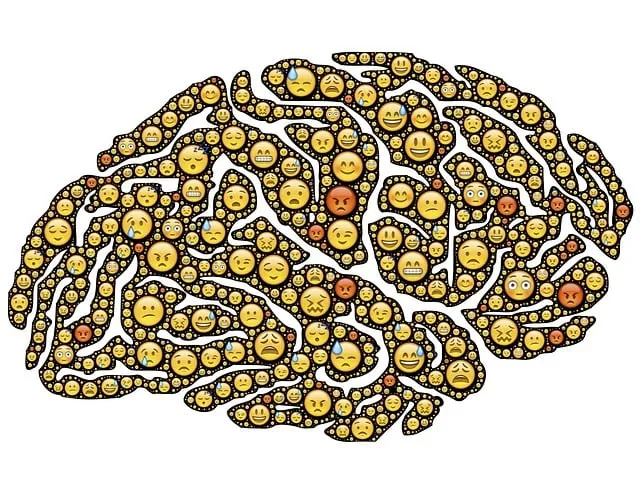Understanding RFM (Risk, Functionality, Motivation) is crucial in modern mental healthcare, especially at facilities like Kaiser's Louisville inpatient facility. This approach goes beyond labels, offering nuanced care by integrating RFM into plans, effectively tailoring Trauma Support Services. The Kaiser Inpatient Mental Health Program in Louisville provides specialized services for diverse conditions through intensive therapy and education, empowering patients with self-esteem and conflict resolution tools. Resilience-building exercises, implemented holistically, focus on preventing depression and improving emotional well-being. Integrating RFM in structured sessions, personalized activities, and supportive environments enhances patient care, with techniques like mindfulness meditation and social skills training leading to positive outcomes. However, consistent implementation across diverse populations remains a challenge, highlighting the need for evidence-based strategies in inpatient mental health care.
“Discover how resilience-focused interventions are transforming mental healthcare at the Kaiser Inpatient Mental Health Program in Louisville. This article delves into the concept of RFM (Resilience, Flexibility, and Mastery), its potential impact on patient well-being, and its practical implementation within clinical settings. We explore effective strategies for integrating RFM exercises, highlighting best practices from the Kaiser program. By examining benefits and challenges, we uncover the transformative power of RFM in enhancing inpatient mental health care.”
- Understanding RFM and Its Role in Mental Health Care
- The Kaiser Inpatient Mental Health Program in Louisville
- Resilience-Building Exercises: A Comprehensive Approach
- Implementing RFM in a Clinical Setting: Best Practices
- Benefits and Challenges of RFM for Inpatient Mental Health Patients
Understanding RFM and Its Role in Mental Health Care

Understanding RFM—or Risk, Function, and Motivation—is pivotal in modern mental health care, especially within institutions like Kaiser’s inpatient facilities in Louisville. This framework goes beyond traditional diagnostic labels to offer a nuanced view of an individual’s well-being. It helps mental health professionals assess not just the severity of symptoms (risk), but also how individuals function in various aspects of life and their inherent motivational factors.
By integrating RFM into care plans, Trauma Support Services can be tailored more effectively. For instance, a comprehensive Risk Assessment for Mental Health Professionals could reveal hidden risks not immediately apparent. This knowledge guides Risk Management Planning, enabling staff to create safe, supportive environments while fostering resilience through targeted interventions. Such an approach ensures that patients, especially those in inpatient settings, receive holistic care that addresses both their immediate needs and long-term mental health goals.
The Kaiser Inpatient Mental Health Program in Louisville

The Kaiser Inpatient Mental Health Program in Louisville is a renowned initiative that has made significant strides in addressing mental wellness within the community. This program offers comprehensive care and specialized services for individuals struggling with various mental health conditions. With a focus on inpatient treatment, it provides a supportive environment where patients can receive intensive therapy and regain control of their lives. The facility is equipped to handle a range of issues, ensuring that each patient receives tailored support.
Designed with a holistic approach, the program incorporates various mental health education programs. These include workshops on self-esteem improvement, conflict resolution techniques, and other therapeutic activities aimed at building resilience. By combining medical expertise with these empowerment tools, Kaiser Louisville fosters not just recovery but also long-term mental wellness, making it a leading example in the field of inpatient mental health care.
Resilience-Building Exercises: A Comprehensive Approach

Resilience-building exercises offer a comprehensive approach to enhancing emotional well-being and fostering mental health. These techniques are designed to equip individuals with the tools needed to navigate life’s challenges, specifically targeting depression prevention as a key strategy. Through various activities, such as mindfulness practices, cognitive reframing, and stress management skills, participants learn to build resilience, which is crucial for maintaining good mental health.
The implementation of these exercises, especially in inpatient settings like Kaiser’s Louisville mental health facility, considers cultural sensitivity in mental healthcare practice. By tailoring the programs to diverse populations, healthcare providers can ensure that every patient receives culturally competent care. This holistic approach promotes emotional well-being by addressing individual needs while recognizing and respecting cultural backgrounds, making it an effective strategy for long-term mental health management.
Implementing RFM in a Clinical Setting: Best Practices

Implementing RFM (Resilience, Flexibility, and Mindfulness) in a clinical setting like Kaiser’s inpatient mental health facilities in Louisville offers a promising approach to enhancing patient care. Best practices involve integrating RFM into structured therapy sessions, tailoring activities to individual needs, and fostering a supportive environment. RFM techniques, such as mindfulness meditation and compassion cultivation practices, can help patients develop emotional regulation skills, improve their ability to cope with stress, and enhance overall well-being.
Additionally, incorporating social skills training within the RFM framework enables individuals to build connections and cultivate healthy relationships. These best practices not only empower patients with effective coping strategies but also create a sense of community within the clinical setting, mirroring the benefits of social support in everyday life. By seamlessly integrating RFM into inpatient mental health care, Kaiser Louisville can contribute to more positive outcomes for its patients.
Benefits and Challenges of RFM for Inpatient Mental Health Patients

Implementing RFM (Risk, Functionality, and Motivation) models in inpatient mental health settings, like those offered by Kaiser in Louisville, presents a dual benefit-challenge landscape. On one hand, RFM offers a structured framework for assessing and enhancing patient resilience, tailoring interventions to individual needs, and tracking progress towards emotional well-being promotion techniques. This personalized approach can significantly contribute to improving self-care practices among patients, many of whom face complex challenges.
On the other hand, successfully integrating RFM into inpatient care requires careful navigation. Mental health professionals must possess robust Risk Assessment skills to accurately identify hazards and vulnerabilities without causing additional distress. Balancing clinical rigor with patient comfort is crucial for fostering a supportive environment conducive to learning and healing. Additionally, consistently implementing RFM across diverse patient populations may pose challenges, highlighting the need for tailored strategies that respect individual differences while adhering to evidence-based practices.
The implementation of Resilient Factors Model (RFM) in mental health care, as demonstrated by the Kaiser Inpatient Mental Health Program in Louisville, offers a promising approach to enhancing patient resilience. Through comprehensive resilience-building exercises, this model equips patients with tools to navigate life’s challenges. Best practices for clinical integration highlight the importance of tailored interventions and a supportive environment. While benefits include improved coping mechanisms and reduced relapse rates, challenges such as individual variability and resource allocation require careful consideration. Nonetheless, the RFM’s potential to revolutionize inpatient mental health care is evident, making it a valuable asset in the quest for holistic patient recovery.






